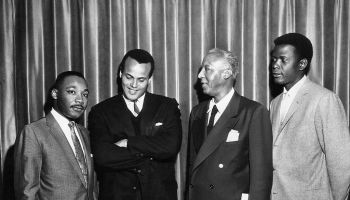<p><span style="font-family: ‘Trebuchet MS’, Verdana, Arial, sans-serif; font-size: 14px; color: #333333; line-height: 20px;">On March 25, I attended the State of the Planet conference held by The Earth Institute at Columbia University. The forum was a global event, using an HD webcast to connect panel speakers from New York, New Delhi, Beijing, Nairobi, Monaco, London, and Mexico City. I had never been to such a diverse and interesting conference that wasn’t an ethnic event. The speakers included plenty of current and former UN officials, royalty from Monaco and the Netherlands, CEO’s of several major corporations, and a slew of professors and experts from regional universities. Although many issues and topics were discussed, in my opinion the two most pressing and important debates were on reducing climate change and alleviating poverty in Africa using “green” technologies. <br /><br /><br />The climate change discussion focused primarily on what it would take to complete the deal known as the Copenhagen Accord, which was agreed upon at the UN climate change conference in Copenhagen, Denmark. The NYC panel of speakers included Prof. Wallace S. Broecker & Prof. Mark Cane of Columbia University and Johan Rockstrom of the Stockholm Environment Institute. Some of the strongest points made during their discussion were how:<br /><br /><br />- Nations failed at coming together in a collective effort to curve climate change<br />- For the first time, climate change has become a more political debate than a scientific one<br />- Part of our solution needs to be capturing and storing CO2, but governments and commercial industry won’t support it. (Even though it costs mere 10’s of millions)<br />- A restructuring of the national power grid is necessary <br />• Stated by Prof. Mark Cane<br />- There can be no clear agreement without the endorsement of China<br /><br /><br />Immediately following those statements, the host (Riz Khan of Al-Jazeera English) connected us live to Beijing, China where James Miles of The Economist was moderating the Chinese panel. Jiang Kejun of the Energy Research Institute, Prof. Qi Ye of Tsinghua University, Xiao Geng of the Brookings Institution, and Prof. Xu Jintao of Peking University were in attendance. They had quite a lot to say about China’s influence on the rest of the world when it comes to climate change, including how:<br /><br /><br />- China had no carbon emissions problems until 200 years ago<br />- China will NOT peak before the United States in carbon emissions<br />- There is a 5-year target for making concrete policies that will help reduce the amount of carbon emissions in China by 40% in 2025<br />- The G-20 summit may be a better forum for international climate change discussion, rather than the UN<br />- There is a major need for civil action by the Chinese public for policy change to happen quicker<br />- NGO’s (non-governmental organizations) are doing the best in educating the public<br />- Current form of democracy is not effective, there needs to be a new global structure instead<br />- Global communication is a must, and they are glad to see President Barack Obama doing a lot to encourage this<br /><br /><br />Heading back to NYC, the experts were able to offer some quick assessments and rebuttals to the points made by the Chinese. They added:<br /><br /><br />- The rest of the world will not take action, unless the United States does first<span style="white-space: pre;"> </span>o But Prof. Wallace S. Broecker rebutted and said since “China is going to lead the world in the future anyway, they should go first”<br />- The
















